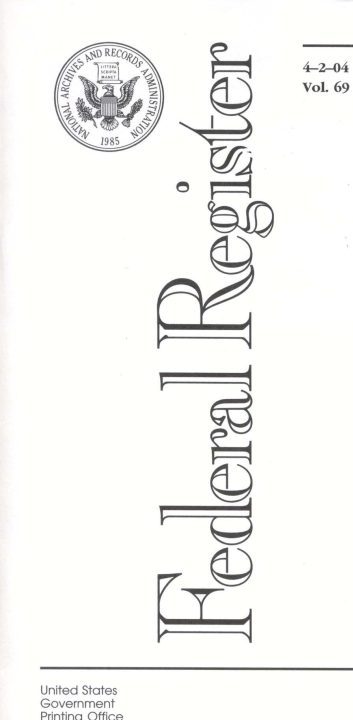Author: Ballotpedia staff
-
ICYMI: Top stories of the week
Fifty members of Congress have announced they will not seek re-election—more than at this point in previous cycles Since Jan. 9, six House members—five Republicans and one Democrat—have said they aren’t running for re-election. In total, seven U.S. Senate members and 43 U.S. House members have announced they are not running for re-election. Forty-eight members…
-
State legislatures acted on 258 bills this week, 146 fewer than last week.
Welcome to The Ballot Bulletin: Ballotpedia’s Weekly Digest on Election Administration. Every Friday, we deliver the latest updates on election policy around the country, including nationwide trends, legislative activity, and updates on notable lawsuits and policy changes. We want to hear from you! Click here to take a short survey letting us know what you…
-
Federal Register weekly update: 78 rules added (2023)

The Federal Register is a daily journal of federal government activity that includes presidential documents, proposed and final rules, and public notices. It is a common measure of an administration’s regulatory activity, accounting for both regulatory and deregulatory actions. From Dec. 18, 2023, through Dec. 22, 2023, the Federal Register grew by 1,486 pages for…
-
ICYMI: Top stories of the week
Each week, we bring you a collection of the most viewed stories from The Daily Brew, condensed. Here are the top stories from the week of December 11-December 15. Thank you to everyone who has taken one of our reader surveys so far. We greatly appreciate your responses! We have a final set of questions…
-
Federal Register weekly update: 586 pages added (2023)

The Federal Register is a daily journal of federal government activity that includes presidential documents, proposed and final rules, and public notices. It is a common measure of an administration’s regulatory activity, accounting for both regulatory and deregulatory actions. From Dec. 11, 2023, through Dec. 15, 2023, the Federal Register grew by 1,512 pages for…
-
Hall Pass: Your Ticket to Understanding School Board Politics, Edition #89
Welcome to Hall Pass, a newsletter written to keep you plugged into the conversations driving school board politics and governance. In today’s edition, you’ll find: Reply to this email to share reactions or story ideas! On the issues: The debate over the use of affinity groups in schools In this section, we curate reporting, analysis,…
-
Federal Register weekly update: Tops 85,000 pages

The Federal Register is a daily journal of federal government activity that includes presidential documents, proposed and final rules, and public notices. It is a common measure of an administration’s regulatory activity, accounting for both regulatory and deregulatory actions. From Dec. 4, 2023, through Dec. 8, 2023, the Federal Register grew by 1,750 pages for…
-
Joe Biden, Donald Trump lead respective presidential primary polling averages and PredictIt markets
As of Dec. 6, 2023, former President Donald Trump (R) leads in both RealClearPolitics’ (RCP) Republican presidential primary polling average and PredictIt’s Republican presidential primary market. Trump’s polling average currently stands at 61%, followed by Florida Governor Ron DeSantis (R) at 14% and former U.N. Ambassador Nikki Haley (R) at 10%. No other candidate has…

